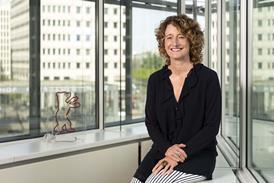What did it feel like to win the Palme d'Or' How did you celebrate'
In 1973 the awards were announced in the afternoon. I was having lunch on an island off the coast. The assistant to my press attache called the mainland and found out that we'd won the Palme.
There were about 10 of us. We had some champagne, we took a boat back to Cannes, talked to some of the press. We got dressed and went to the ceremony. I was given my Palme by Ingrid Bergman. We had a nice chat backstage about her daughters.
How did it affect your career'
It obviously introduced me to a number of people throughout the world who didn't know me. I can't say how it affected me particularly; but I'm still working. All in all, I think it had a positive effect.
Did it make it easier to attract funding for subsequent projects'
I continued working in America. As my career went on, I started to find financing in Europe.
Which director would you give an all time Palme d'Or to'
A very difficult question to answer; that said, at the 50th anniversary of Cannes I voted for a Palme for Ingmar Bergman.
Where do you keep your Palme d'Or'
In my office.
What have been the most important shifts in the industry during your career'
Perhaps the end to a certain aspect of the studio system. It seems that the studio executives at one time knew more about film-making. Today everything is based on how much money you make.
How do you see the role of festivals changing'
There are many more festivals but that's good, especially for young film-makers. The established festivals are perhaps getting too big, which obliges them to cater to commercial elements.
What are your hopes/fears for the future'
My hopes are that I will continue to work on films, film scripts, ideas, and my fears are that something will stop me.
















![[L-R]: Amanda Villavieja, Laia Casanovas, Yasmina Praderas](https://d1nslcd7m2225b.cloudfront.net/Pictures/274x183/6/4/1/1471641_pxl_20251224_103354743_618426_crop.jpg)


No comments yet